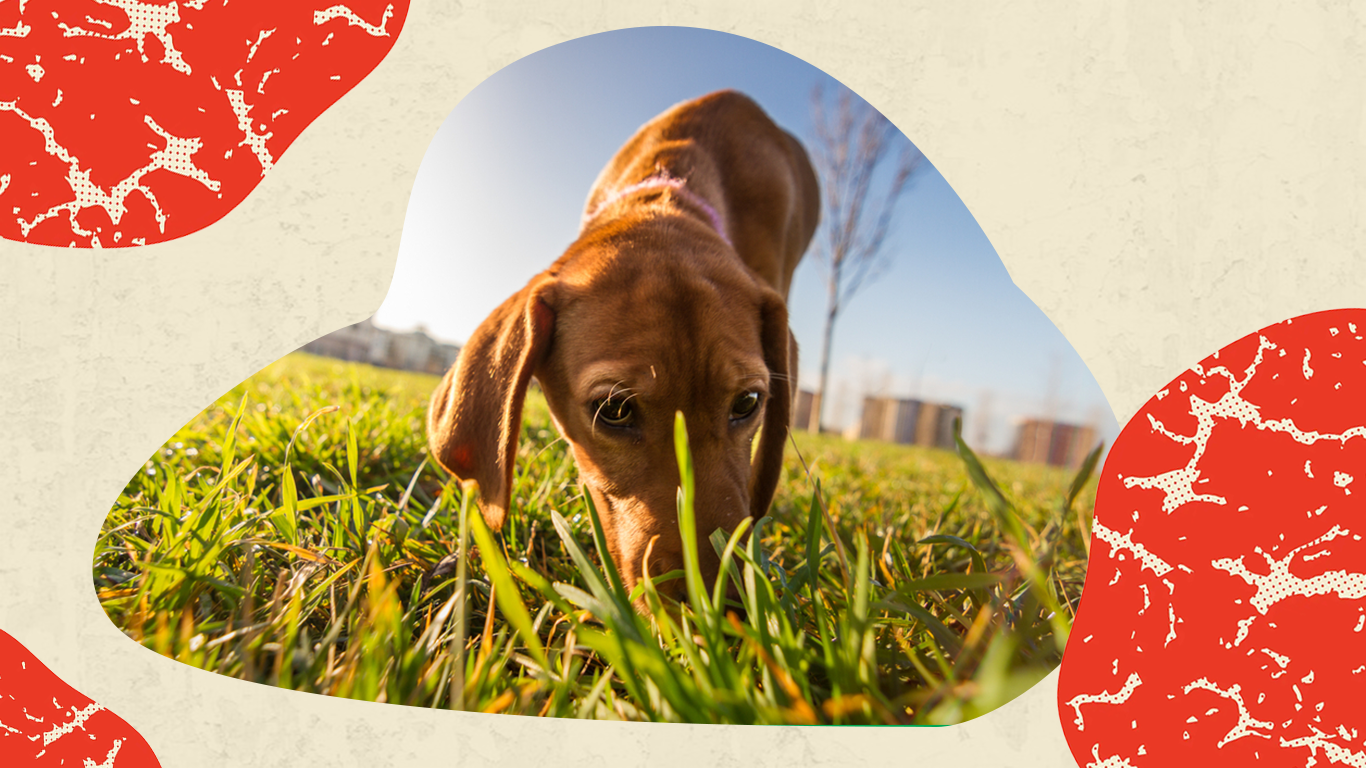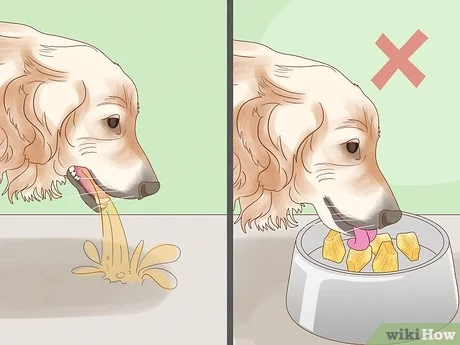To discourage your dog from eating poop, consider dietary adjustments and positive reinforcement. Regular exercise and mental stimulation can also deter this behavior.
Dealing with a dog that has a habit of eating poop can be distressing for any pet owner. This behavior, known scientifically as coprophagia, is not only unpleasant but also potentially harmful to your pet’s health. A well-rounded approach to curbing this habit involves a mix of home remedies, lifestyle changes, and consistent training.
Ensuring your dog receives a balanced diet rich in nutrients can reduce the urge to seek out additional sustenance from feces. Engaging your furry friend in more physical activity and providing plenty of mental challenges can help redirect their energy away from undesirable habits. Remember, patience and consistency are key in modifying your dog’s behavior. It’s crucial to supervise your pet during walks and quickly clean up any waste to remove the temptation.
Introduction To Coprophagia In Dogs
Dog owners often face a puzzling and gross habit: their furry friends eating poop. This behavior, known as coprophagia, is not only unpleasant but can also lead to health concerns. Understanding why dogs engage in this habit is the first step in stopping it.
The Basics Of Canine Coprophagia
Canine coprophagia refers to a dog’s tendency to consume feces. This can include their own waste, that of other dogs, or even that of different species. Several reasons might trigger this behavior, from nutritional deficiencies to boredom or curiosity.
Health Risks Associated With Poop Eating
Eating feces exposes dogs to various pathogens and parasites. Health risks like parvovirus, whipworms, and giardia are real concerns. These can lead to vomiting, diarrhea, and other serious health issues. Preventing coprophagia is crucial for a dog’s well-being.
| Risks | Consequences |
|---|---|
| Parasites | Internal infections |
| Bacteria | Stomach problems |
| Viruses | Severe illnesses |
- Keep the environment clean: Regularly remove feces from your yard.
- Healthy diet: Ensure your dog’s diet fulfills all nutritional needs.
- Distract and reward: Use treats and play to distract from feces.
- Check for health issues: Consult a vet for underlying conditions.
By understanding the basics of canine coprophagia and the health risks involved, dog owners can begin to tackle this unsavory behavior. Home remedies and preventive measures can be effective in keeping dogs safe and healthy.
Identifying The Reasons Behind The Behavior
Dogs eating poop, or coprophagia, can be a puzzling and unpleasant habit for pet owners. Understanding why your dog engages in this behavior is the first step towards stopping it. Let’s explore the common reasons, from nutritional deficiencies to behavioral and environmental triggers.
Nutritional Deficiencies Leading To Coprophagia
One of the main reasons dogs eat poop is nutritional imbalance. Dogs may seek out feces if their diet lacks certain nutrients or enzymes. High-quality, balanced diets are crucial for preventing this issue.
Homemade diets often miss essential nutrients. Ensure your dog’s meals are complete with all necessary vitamins and minerals. Supplements may also help. Consult a vet for the best advice.
Behavioral Causes And Environmental Triggers
Behavior plays a significant role in coprophagia. Dogs with anxiety or stress might eat feces as a coping mechanism. Boredom or seeking attention can also lead to this behavior. Regular exercise and mental stimulation are important.
Environmental factors include accessibility to feces and observing other dogs. Keep your yard clean and monitor your dog’s interactions. Training can correct this behavior over time.
Assessing Your Dog’s Diet
Stopping your dog from eating poop may start with a look at their meals. Dogs often seek out extra nutrients by eating poop. A balanced diet is key to deterring this behavior. Let’s explore how to ensure your dog gets all they need from their bowl.
Evaluating Nutritional Balance
A well-rounded diet is crucial for your dog’s health. Lack of nutrients can lead to coprophagia, a term for poop eating. Start by checking the food label. Your dog’s food should meet the AAFCO guidelines. These standards ensure that pet food has the right nutrient balance for your dog’s life stage.
- Protein: Look for high-quality sources like chicken, beef, or fish.
- Fats: Necessary for energy and healthy skin. Omega-3 and 6 are important.
- Carbohydrates: Provide fiber and energy. Whole grains or vegetables are best.
- Vitamins and Minerals: Essential for immune health and metabolism.
Regular vet check-ups are vital. Blood tests can reveal nutrient deficiencies. Addressing these gaps can stop poop eating.
Dietary Adjustments To Deter Coprophagia
Changing your dog’s diet may help. Some foods make poop less appealing to dogs. Here are a few changes you might consider:
| Adjustment | Benefit |
|---|---|
| Addition of Pineapple | Makes poop taste bad to dogs. |
| Pumpkin Puree | Boosts fiber and digestive health. |
| Probiotics | Improves gut health, reducing poop eating. |
Consult your vet before making changes. They can recommend specific brands or supplements. Remember, patience is key. It may take time to see changes in your dog’s behavior.
Preventing coprophagia is possible with the right diet. Assessing and adjusting what your dog eats is a great first step. Keep your yard clean of waste. This reduces temptation and reinforces good habits. With these tips, you can help your dog kick the poop-eating habit for good.

Credit: www.wikihow.com
Training Techniques To Discourage Coprophagia
Training Techniques to Discourage Coprophagia are crucial in preventing dogs from eating poop. These methods not only help in breaking the habit but also reinforce good behavior.
Positive Reinforcement Strategies
Positive reinforcement is a powerful tool in dog training. It involves rewarding your dog for good behavior, which in turn encourages them to repeat those actions. Here are key strategies:
- Offer treats immediately after your dog ignores feces.
- Praise them verbally with phrases like “Good dog!” to boost their morale.
- Provide physical affection, such as petting or playing, to reinforce the correct behavior.
Using Commands To Prevent Unwanted Eating
Commands are effective in stopping your dog from eating poop. Train your dog to respond to these commands:
- “Leave it” – Teach your dog to leave the poop untouched.
- “Come” – Call them to you instead of approaching the poop.
Practice these commands regularly in controlled environments to ensure your dog understands and obeys when it matters most.
Environmental Management And Cleanliness
Dealing with a dog that eats poop requires smart environmental management and a focus on cleanliness. This approach can help prevent the behavior from occurring. Let’s explore practical home remedies to keep your space clean and your dog healthy.
Regular Cleaning Schedules
Set a routine for cleaning your yard or dog’s area. Dogs are less likely to eat poop if it’s removed promptly.
- Pick up after your dog immediately after they go.
- Inspect your yard daily for any waste left behind.
- Clean common areas where your dog spends time.
Safe Disposal Of Feces
Proper disposal is key to preventing poop-eating behavior. Here’s how to do it safely:
- Use biodegradable bags to pick up poop.
- Seal the bag and place it in a designated trash bin.
- Wash your hands thoroughly after handling waste.

Credit: miamipetconcierge.com
Natural Deterrents And Home Remedies
Struggling with your dog’s unsavory habit of eating poop? You’re not alone. Many pet owners face this challenge, but natural deterrents and home remedies can help. These methods are safe, effective, and easy to implement. Let’s explore how you can discourage this behavior with simple solutions you can find at home or in your local store.
Safe Additives For Dog Food
Transform your dog’s mealtime into a chance to prevent poop-eating. Safe, natural additives can make their waste less appealing. Here’s what you can add:
- Pineapple: A few chunks can make poop taste bad to dogs.
- Pumpkin: It’s healthy and alters the taste of poop.
- Meat Tenderizer: A sprinkle on food can do the trick.
- Apple Cider Vinegar: Just a splash can change the poop’s taste.
Homemade Deterrent Sprays
Create deterrent sprays with common household items. Spray these on feces to keep your dog away:
| Ingredient | Effectiveness |
|---|---|
| Lemon Juice | High |
| White Vinegar | Medium |
| Chili Pepper | High |
Note: Always test a small area first to ensure it’s safe for your dog.
When To Seek Professional Help
Despite home remedies, sometimes a dog’s poop-eating habit persists. This signals the need for professional help.
Consulting A Veterinarian
Always start with a veterinarian visit to rule out health issues. Dogs often eat poop due to nutritional deficiencies or digestive problems. A thorough check-up can reveal these hidden issues. The vet may recommend:
- Special diets or supplements
- Tests for parasites
- Overall health assessment
Behavioral Therapy For Persistent Cases
If health issues are not the cause, consider behavioral therapy. Dogs may develop this habit due to stress, boredom, or attention-seeking behaviors.
A certified animal behaviorist can offer strategies:
- Training sessions to discourage the behavior
- Environmental changes to reduce the habit
- Regular monitoring and updates on progress
Remember, consistency is key in therapy.

Credit: www.wefeedraw.com
Prevention And Ongoing Management
Understanding Prevention and Ongoing Management is crucial in stopping your dog from eating poop. It’s not just about a quick fix; it’s about creating a sustainable environment that discourages this behavior. Here’s how to ensure your furry friend leads a poop-free lifestyle.
Maintaining A Healthy Lifestyle For Your Dog
A healthy dog is less likely to eat poop. Focus on diet, exercise, and regular check-ups.
- Quality Diet: Feed your dog balanced meals with all necessary nutrients.
- Regular Exercise: Keep your dog active to reduce boredom and anxiety.
- Veterinary Visits: Ensure regular health checks to rule out any underlying issues.
Monitoring And Adapting Your Approach
Pay close attention to your dog’s behavior and make changes as needed.
- Supervise Outdoors: Watch your dog during potty breaks and clean up immediately.
- Positive Reinforcement: Reward your dog for leaving poop alone.
- Consistency is Key: Stick to your management plan for lasting results.
Frequently Asked Questions
What Is A Natural Remedy To Stop Dogs From Eating Poop?
To naturally deter dogs from eating poop, try adding meat tenderizer or pineapple chunks to their food, as these can make feces less appealing.
What Is The Best Deterrent For Dogs Eating Poop?
The best deterrent for dogs eating poop is a combination of training, dietary adjustments, and possibly deterrent products like taste-aversion additives.
How Do You Break The Habit Of Dogs Eating Poop?
To stop dogs from eating poop, keep their living area clean and remove waste promptly. Offer a balanced diet and engage them in regular exercise. Consult a vet for any underlying health issues, and use taste-aversion products if necessary. Consistent training and positive reinforcement are also key.
What Can You Sprinkle On Dog Poop To Stop Eating?
Sprinkle meat tenderizer or a commercial deterrent on dog poop to discourage eating. These products often contain safe, bitter flavors deterring dogs from this behavior.
Conclusion
Tackling your dog’s habit of eating poop can be challenging, but with these home remedies, you have a solid starting point. Consistency is key, so choose a method and stick with it. Remember, patience and persistence will lead to success.
Keep your furry friend healthy and your yard clean by applying these straightforward solutions.

